1. Μνημεία δομημένα εν ξηρώ
Σε αυτά ανήκουν τα κλασικά – ελληνιστικά μνημεία (ναοί, πύργοι, οχυρώσεις κλπ.) καθώς και ορισμένα προϊστορικά (οι πιο εμβληματικοί θολωτοί τάφοι), οθωμανικά (μιναρέδες) ή νεώτερα (τμήματα μνημείων π.χ. προστώα, καθώς και ταφικά μνημεία). Η ενότητα αυτή εκτείνεται σε 4-5 μαθήματα και περιλαμβάνει:
(α) Τυπολογία, κατασκευαστική ανάλυση και συνήθη παθολογία,
(β) Θεωρητική προσέγγιση δομικής συμπεριφοράς, μεθόδους ανάλυσης, ελέγχους κλπ.,
(γ) Σχεδιασμό και διαστασιολόγηση επεμβάσεων με αναφορά στις αρχές και στο κανονιστικό πλαίσιο, και
(δ) Παραδείγματα αναλύσεων και επεμβάσεων.
2. Μνημεία δομημένα με τοιχοποιίες με κονιάματα
Σε αυτά ανήκουν ρωμαϊκά, βυζαντινά, μεταβυζαντινά, οθωμανικά και νεώτερα μνημεία. Η ενότητα αυτή εκτείνεται σε 6-7 μαθήματα και περιλαμβάνει:
(α) Τυπολογία συνήθων και ειδικών κατασκευών, ανάλυση, συνήθη παθολογία και αναφορά στις αρχές και στο κανονιστικό πλαίσιο (υλικά και τυπικές δομές, αιτίες και ανάπτυξη βλαβών, κατηγοριοποίηση των κατασκευών, θεσμικό πλαίσιο και νομοθεσία),
(β) Μέθοδοι διερεύνησης υφιστάμενης κατάστασης,
(γ) Θεωρητική προσέγγιση δομικής συμπεριφοράς, μέθοδοι προσομοίωσης και ανάλυσης (μηχανική της τοιχοποιίας, μέθοδοι προσομοίωσης και γραμμικές μέθοδοι ανάλυσης, ανελαστική στατική ανάλυση, τοπικοί μηχανισμοί),
(δ) Σχεδιασμό και διαστασιολόγηση επεμβάσεων,
(ε) Παραδείγματα αναλύσεων και επεμβάσεων.
3. Υποστηρικτικά μαθήματα
Πρόκειται για 1-2 διαλέξεις με θέμα:
(α) Προστασία των μνημείων στην πράξη, στο πλαίσιο της Αρχαιολογικής Υπηρεσίας και του ΥΠ.ΠΟ.: ιστορία της προστασίας, συντήρησης και αποκατάστασης μνημείων στην Ελλάδα, και
(β) Δομικά υλικά, υλικά ιστορικών κατασκευών και υλικά επισκευής (αναφορά σε λίθους & πλίνθους, έμφαση σε κονιάματα & ενέματα): σύντομη ιστορική αναδρομή, μέθοδοι ανάλυσης και χαρακτηρισμού υλικών, παθολογία, προσδιορισμός απαιτήσεων υλικών επισκευής κι ενίσχυσης (επιτελεστικότητες), σχεδιασμός.
4. Διάλεξη προσκεκλημένου ομιλητή
Θα αφορά διάφορα συναφή θέματα που σχετίζονται με την προστασία μνημείων, όπως: αρχαιολογία, επιστήμη υλικών, σύγχρονες μέθοδοι αποτύπωσης, ασφάλεια μουσειακών εκθεμάτων κλπ. Με τον τρόπο αυτό, οι φοιτητές θα αποκτήσουν συνολική εικόνα και θα γνωρίσουν το αντικείμενο των άλλων ειδικοτήτων που εμπλέκονται στην προστασία μνημείων και αρχαιολογικών χώρων, θα τοποθετήσουν το προτεινόμενο μάθημα (που εστιάζεται στην κατανόηση και υπολογιστική ανάλυση μνημειακών κατασκευών) στο ευρύτερο πλαίσιό του και θα κατανοήσουν την ανάγκη και τα οφέλη συντονισμού και συνεργασίας όλων των εμπλεκομένων.
- Διδάσκων: Ελενη-Ευα Τουμπακαρη
- Διδάσκων: Μιχαήλ Φραγκιαδάκης
- Διδάσκων: Ιωάννης Ψυχάρης
